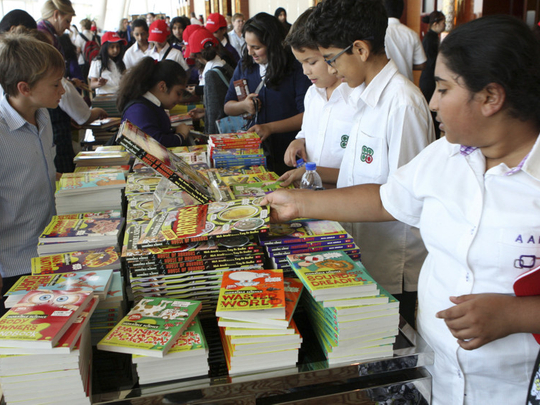
Despite enjoying its 10th anniversary this year, the International Prize for Arabic Fiction (IPAF) is one of those awards which may well sail over the heads of many supposedly ‘avid’ readers. There is an unfortunate assumption that all Arabic literature must be scholarly, reverent, historic and possibly set a long time ago. Thankfully, that stereotypical view that is far from the case and applies as little to literature in the Arab World as it does in the West. The greatest difference is that western fiction tends to be more accessible. The beauty of Arabic writing, the complexity of the characters and the audacity of the plots are as gripping, joyful, heartbreaking and breathtaking as any other work from any other part of the world.
Since 2008, some of the most talented Arabic authors have been recognised and rewarded for their work, which has varied so enormously in range and styles. Past winners, for example, have included ‘Throwing Sparks’ by Saudi novelist Abdo Khal. This is an amazing personal insight into the core of human behaviour, told through the confessions of a hit man, employed by a mysterious rich businessman in Jeddah. Abandon your preconceptions — there is no holding back here. Another work of genius is the winner of the 2014 prize, Ahmed Saadawi for ‘Frankenstein in Baghdad’. There are some tenuous connections to Mary Shelley’s original masterpiece, but here the monster is composed of the body parts torn apart in explosions during the Iraq war in the Spring of 2005. Revenge is not so sweet.
It is impossible in such little space to pay homage to all winning authors and their works, but each and every one of them has contributed enormously to the perception, accessibility and reach of Arabic literature across the world.
From a purely selfish point of view as a consumer and lover of fiction, one of the main goals of the prize, which is run with the support of the Booker Prize Foundation in London and funded by Abu Dhabi Tourism and Culture Authority, is to encourage translations of all shortlisted books. Until that happens, the vast majority of us are missing out on an undecipherable library of some of the greatest works in the world. To our enormous gratitude, every one of the winning titles, and a significant number of shortlisted and longlisted books have been translated in Europe, Asia and South America. Sunset Oasis by Bahaa Taher, who was awarded the prize in 2008, has since been translated into eight languages worldwide.
The longlist this year consists of 16 authors who have been selected from 186 entries across 19 countries, all published within the last 12 months. Their ages range from 37 to 76 and their novels are as varied as their life experiences.
The IPAF shortlist will be announced in mid-February at the Palace of Culture in Algiers, Algeria and the winner of the International Prize for Arabic Fiction, 2017 will be announced at an awards ceremony in Abu Dhabi on Tuesday April 25. As well as creative recognition, the prizes themselves are by no means insubstantial; the six shortlisted finalists will receive $10,000 (Dh36,730), with a further $50,000 going to the winner.
Other international awards have no less merit, however, a western book tends to be enjoyed more by a western audience, a Japanese book more by a Japanese audience and so on. The perception and misconception of the wider Arab World is often that it is too alien for a mainstream audience; the culture is viewed as so vastly different that there is a cultural barrier, regardless of language. This award is vital in helping to break down those fallacies.
Our theme at the Emirates Airline Festival of Literature this year is ‘Journeys’. We have more Arabic authors this year than ever before and more interest in their work since the festival began in 2009. I believe that we will lead the authors on a journey to their potential new audiences and introduce the readers to the wealth of Arabic writers who may have previously have been strangers. With this in mind, please take the opportunity at the Festival to see Rabai Al Madhoun discussing his IPAF award winning novel Destinies: Concerto of the Holocaust and the Nakba on 9th March, alongside Mansoura Ez Eldin and Mohammad Rabie. There is simultaneous translation, so language will not be a barrier.
We pride ourselves on having some of the best-loved novelists in the world as guests at the festival and our pride in those from the Arab world could not be greater. We see Arabic writers each year grow in both strength and depth and among the greatest inspirations for that, we can thank the International Prize for Arabic Fiction.
The authors may receive the prizes, but the readers are the true winners.










